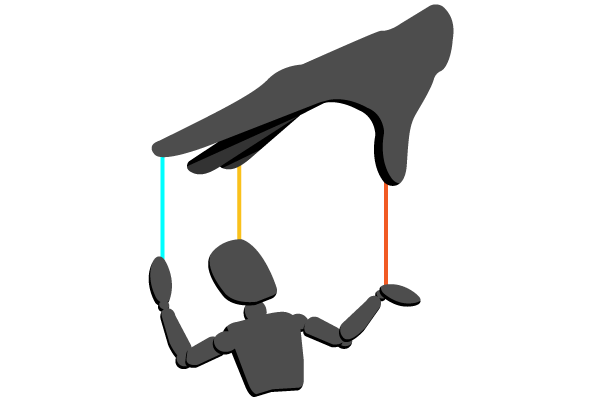When it comes to psychology, there are all sorts of interesting 'hacks' that can help you better understand yourself and others. Here are just a few of the coolest psychological hacks that we've come across:
The Zeigarnik Effect is the phenomenon whereby unfinished tasks tend to stick in our minds more than those that are completed. So, if you've got a lot on your plate and are feeling overwhelmed, try to focus on completing just one task at a time. Not only will this help you to feel more productive, but you'll also find that the unfinished task will be less likely to bother you once it's done.
2. The Decoy Effect
The Decoy Effect is a cognitive bias that occurs when we're presented with two options and one of them is clearly inferior to the other. However, we often still choose the inferior option simply because it's the only one that's close to the superior option in terms of quality. For example, you might be more likely to choose a hotel room that's $200 per night if the next cheapest option is $250 per night. However, if the next cheapest option is $150 per night, you're likely to go with that one instead.
3. The sunk cost fallacy
The sunk cost fallacy is a cognitive bias that causes us to irrationally continue investing in something as long as we've invested so much in it already. For example, you might continue going to a movie that you're not enjoying simply because you paid for the ticket and don't want to waste your money. However, the sunk cost fallacy often leads to us throwing good money after bad and can cause us to miss out on better opportunities.
4. The bystander effect
The bystander effect is a social psychological phenomenon that occurs when individuals are less likely to offer help to a victim when there are other people present. This is often due to the diffusion of responsibility, where individuals believe that someone else will be more likely to help so they don't need to. The bystander effect can often have tragic consequences, such as in the case of Kitty Genovese, who was stabbed to death in New York City while multiple witnesses did nothing to help.
5. The priming effect
The priming effect is a cognitive phenomenon whereby exposure to one stimulus (e.g., a word) influences our reaction to a subsequent stimulus (e.g., another word). For example, if you're shown the word 'black' followed by the word 'coffee,' you're likely to think of coffee as being bitter. However, if you're shown the word 'sweet' followed by the word 'coffee,' you're more likely to think of coffee as being sweet. The priming effect can often lead to us making snap judgments and decisions that we wouldn't otherwise make.
6. The halo effect
The halo effect is a cognitive bias that occurs when our overall impression of someone influences our judgments of their individual characteristics. For example, if we think someone is attractive, we're likely to also think they're kind, intelligent, and successful. However, the halo effect can often lead us to make inaccurate judgments about others and can even lead to discrimination.
7. The Baader-Meinhof phenomenon
The Baader-Meinhof phenomenon is the phenomenon whereby we're more likely to notice something after we've just been exposed to it. For example, you might see a commercial for a new car and then start seeing that car everywhere you go. This phenomenon is often chalked up to the fact that our brains are constantly scanning the environment for things that are relevant to us.
8. The self-fulfilling prophecy

The self-fulfilling prophecy is a phenomenon whereby our expectations about someone or something influence our behavior in a way that leads to those expectations being met. For example, if we believe that a child is going to be naughty, we might treat them harshly, which could then lead to them actually behaving in a naughty way. The self-fulfilling prophecy can often have negative consequences, such as when teachers have low expectations of their students and those students then go on to underachieve.
9. The placebo effect
The placebo effect is a psychological phenomenon whereby people's expectations about a treatment can influence the efficacy of that treatment. For example, if we believe that a pill will help us to feel better, we're more likely to actually feel better after taking it even if the pill is just a sugar pill. The placebo effect can be harnessed in positive ways, such as when patients are told that they're receiving a new and effective treatment when in reality they're just receiving a placebo.
10. The power of positive thinking
It might sound like a cliché, but positive thinking can actually be a very powerful psychological tool. When you focus on the positive, it can help you to see the good in every situation and to find the silver lining in every cloud. Additionally, positive thinking can help to increase your overall happiness and well-being.
These are just a few of the many cool psychological hacks that you can use to your advantage. So, next time you're in a situation where you need an edge, remember to use these hacks to give yourself a boost. If you use these hacks, you can potentially improve your life in a number of ways.